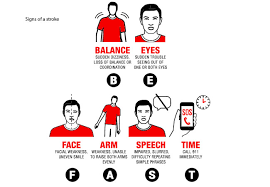To understand this, the researchers analysed 14,926 participants between 1990 and 2018 who were 45 years and above. Between this time, the participants underwent tests that assessed their memory, speech, and reaction times in the population-based Rotterdam Study.
The study reports that following a mean of 12.5 years of follow-up, a total of 1662 participants suffered a first-ever stroke.
For the research, the participants underwent the Mini-Mental State Examination and routine cognitive assessment.
Other cognitive assessments used were the 15-Word Learning Test (delayed recall, number of correct answers, range 0–15), the Letter–Digit Substitution Task (number of correct digits, range 0–125), Stroop Task (colour-word interference subtask, total seconds taken), the Verbal Fluency Test (number of animals in 1 min) and the Purdue Pegboard Test (number of pins placed with both hands simultaneously, range 0–25).
In addition, basic and instrumental activities of daily living (BADL and IADL) were assessed.
The result as reported by the study was that “During a mean follow-up of 12.5±6.8 years, a total of 1662 participants suffered a first-ever stroke.
“Patients who had a stroke deviated from stroke-free controls up to 10 years before stroke diagnosis in cognition and daily functioning.
“Significant deviations before stroke were seen in scores of MMSE (6.4 years), Stroop (5.7 years), Purdue Pegboard (3.8 years), and BADL and IADL (2.2 and 3.0 years, respectively).
The study said that patients who had a stroke have steeper declines in cognition and daily functioning up to 10 years before their first-ever stroke compared with stroke-free individuals.
source: HealthWise

 A new study has suggested that people who suffered stroke may have started experiencing signs of the health condition 10 years before the attack occurs.
A new study has suggested that people who suffered stroke may have started experiencing signs of the health condition 10 years before the attack occurs. 




